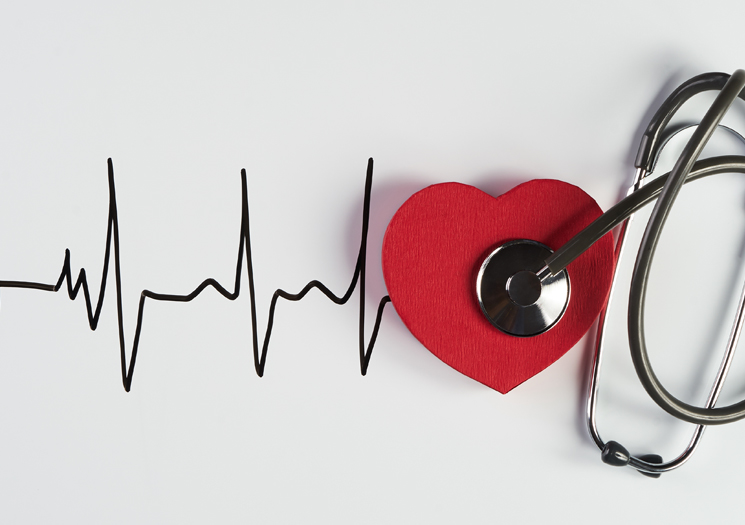- Find a Provider
-
Services
-
Redeemer Health provides compassionate care across every stage of life.
- View all Services
-
- Patients & Visitors
- Locations
- Careers
Dr. Natasha Fonseka Works with Redeemer Health to Encourage a Heart Healthy Community
February 6, 2023
categories:

For Natasha Fonseka, the calling to become a cardiologist was one she happily answered.
“I have a strong passion for preventive health," she says. "My mom has rheumatic heart disease. My dad had a heart stent put in at an early age. I've seen what diseases can do to a community, to a family, and to a person. So anytime I can prevent that suffering, it's a win for me."
Dr. Fonseka's passion for preventive medicine, especially regarding heart disease,
is what attracted her to Redeemer Health and the community it serves.
Heart disease is the number one cause of death in the United States. Every 34 seconds, someone passes away due to complications of heart disease.
Why is Heart Disease So Prevalent?
A major contributing factor is our diet. Sodium in foods and salt can have a significant effect on our blood pressure. "We're, on average, eating two or three times the recommended amount of salt," says Dr. Fonseka.
Federal dietary guidelines suggest no more than 2,000 mg of sodium daily, which is about one teaspoon of salt. "Depending on health issues such as uncontrolled high blood pressure or congestive heart failure, the restriction may be less than 1,500 milligrams a day," says Dr. Fonseka.
Over time, high sodium intake can contribute to hypertension, which damages the arteries, making them less able to carry blood and oxygen to the heart, she explains.
Finding the Sodium Solution
Monitoring your sodium intake is one of the best things you can do for your heart health. And it's easier than you think once you know how.
According to Dr. Fonseka, processed food is the primary source of sodium for most people. You can reduce your sodium intake by getting into the habit of reading food labels when grocery shopping. Food labels provide a wealth of information regarding ingredients and serving sizes.
For example, a bag of potato chips may have only 300 mg of sodium per serving. But say you eat the entire bag, which contains three servings. Before you know it, you've consumed 900 mg, or 45 percent, of your daily sodium allowance.
Learning to read food labels, moving away from processed foods such as hot dogs, bacon, salami, fast foods, and sweetened drinks, and consuming more water and natural fruit and vegetables can help improve heart health, she advises.
The Mediterranean Diet
A Mediterranean diet can help you combat heart disease—a fact supported by the New England Journal of Medicine. Their study showed that those who adopted the diet had significantly lower rates of strokes, heart attacks, and other related conditions.
The focus is on consuming the right amounts of olive oil, fruit, nuts, and vegetables, a moderate intake of fish and poultry, a small amount of dairy products, red meat, processed meats, sugar, and wine in moderation.
But with rising food prices, you may question whether following the Mediterranean diet will fit into your budget. After all, these items can be a bit pricey, and processed foods are so much cheaper.
As Dr. Fonseka puts it, "You are actually saving money by not having to go to a doctor, not having to go to a pharmacy to pick up medication, not being admitted to a hospital, and being able to go to work to provide for your family."
You can get the health benefits of the Mediterranean Diet and save money by creating a meal plan. Creating a meal plan may seem cumbersome, but once you've planned a week of meals, you'll discover it's a great time and money saver.
Get Pumped
While lowering sodium intake and adopting healthy eating habits are essential, Dr. Fonseka also stresses the need for regular physical activity.
According to the National Library of Medicine, you need to do at least 30 minutes of moderate exercise five times weekly to effectively lower your risk of developing heart disease. If you’re new to exercising, try brisk walks, jogging, or swimming. Strength training also helps to lower body fat and encourage lean muscle growth.
The key is to start slowly, she says. Begin with 10- to 15-minute workout sessions a day and strength train using one- to three-pound weights. Regular aerobic activity and strength training can help strengthen the heart and reduce extra body fat, especially belly fat, which is linked to an increased risk of heart disease.
And don’t forget about your mental health.
According to Dr. Fonseka, "We're not putting enough emphasis on our mental health, which impacts all organs, including the heart."
Want to win the fight against heart disease? Lower your sodium intake, exercise regularly, eat a heart-healthy diet, and pay attention to your emotional well-being.
About Dr. Fonseka
Dr. Fonseka is an expert in cardiovascular health, diagnosing and treating conditions related to the heart. She has a keen eye for detail, from chest pain to leg swelling, and lightheadedness or fatigue.
She not only specializes in hypertension and hyperlipidemia, but also takes a holistic approach, providing valuable insight into coronary artery disease, congestive heart failure, nutrition and women's health.
Dr. Natasha Fonseka sees patients at Redeemer Health Cardiology - Feasterville, located at 23 Bustleton Pike, Feasterville, PA 19052. Her office can be reached at 215-436-1420.



